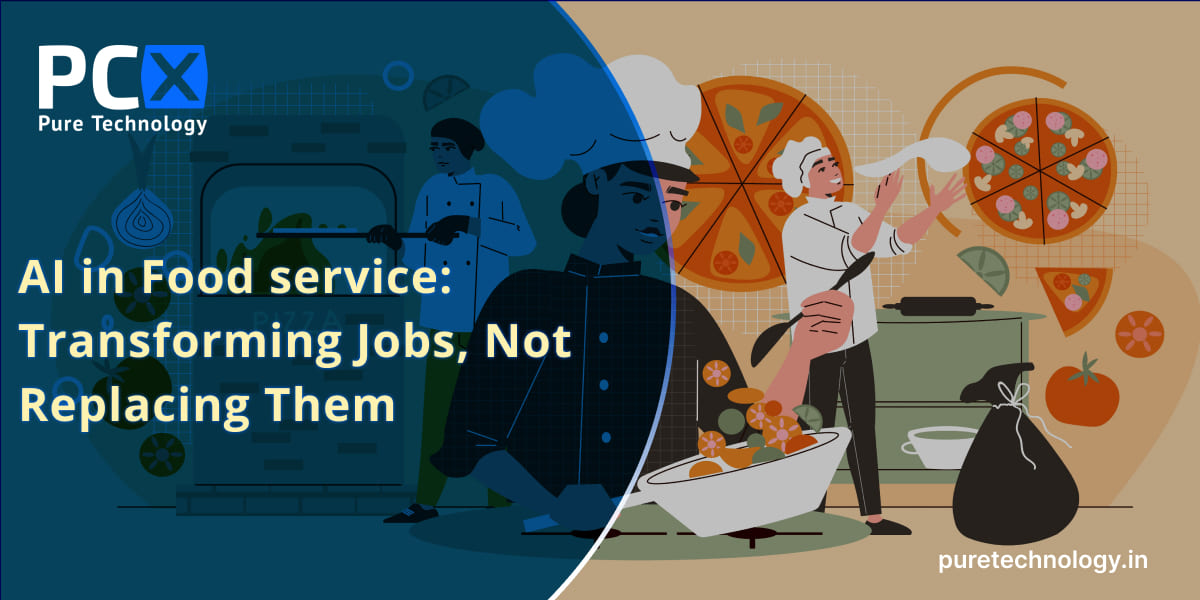AI in Food Service: Transforming Jobs, Not Replacing Them
The integration of Artificial Intelligence (AI) into the food service industry is one of the biggest transformations of the decade. From automating kitchen operations to predicting customer demand, AI is changing how restaurants and food brands operate. However, the question remains: Is AI replacing jobs or transforming them?
AI in Food service: The Current Landscape
In 2025, the food service industry is leveraging AI for various operations such as order management, inventory tracking, personalized marketing, and even cooking automation. Systems powered by machine learning and predictive analytics are helping businesses enhance efficiency and reduce waste, while also improving customer satisfaction.
For example, AI-driven tools can forecast busy hours, recommend dishes based on customer preferences, and even manage ingredient sourcing automatically. These advancements enable restaurant staff to focus more on quality and experience, rather than repetitive manual tasks.
Is AI a Job Killer? Not Quite
The biggest misconception about AI in food service is that it will eliminate jobs. While AI does automate certain tasks, it actually creates new roles that require human creativity, decision-making, and empathy — aspects machines cannot replicate.
Here’s how:
- New Roles in Technology Management
Restaurants now need AI operators, data analysts, and system supervisors to manage smart devices and predictive software. - Enhanced Customer Experience Roles
As automation handles the backend, front-end employees focus on personalizing service, improving hospitality, and enhancing the dining experience. - Upskilling Opportunities
Employees can transition into higher-value positions like data-driven inventory planners, digital order managers, or AI maintenance specialists. - Reduced Human Error
AI supports human staff by reducing repetitive workload and minimizing mistakes, ensuring faster service and higher customer satisfaction.
Where AI Adds the Most Value in Food service
- Smart Kitchens: Automated cooking and monitoring systems maintain consistency and quality.
- Predictive Demand Forecasting: AI helps manage stock levels and reduce food waste.
- Voice and Chat Ordering: AI-powered chat bots and voice assistants streamline online orders and improve communication.
- Customer Insights: Machine learning tools analyze data to personalize menus and promotions.
- Operational Efficiency: AI-driven robotics manage repetitive kitchen tasks like chopping or frying, freeing human staff for creative or customer-facing roles.
How Businesses Can Adapt to AI Integration
- Invest in Employee Training: Equip staff with the knowledge to work alongside AI tools.
- Adopt Gradual Automation: Start with AI in non-customer areas like inventory or logistics.
- Focus on Human-AI Collaboration: Use AI to assist, not replace, employees.
- Prioritize Ethical Use: Maintain data transparency and customer trust when using AI systems.
The Future of Food service with AI
The future of food service will not be defined by robots replacing humans, but by humans empowered by AI. Restaurants that embrace AI responsibly will find that it enhances both operational excellence and employee satisfaction.
Conclusion
AI is reshaping the food service industry — but rather than replacing people, it is redefining roles and opportunities. The key lies in balance: leveraging technology to improve speed and precision while maintaining the human touch that defines hospitality.
Businesses that embrace this transformation today will lead the industry tomorrow.
Call us for a professional consultation












Leave a Reply